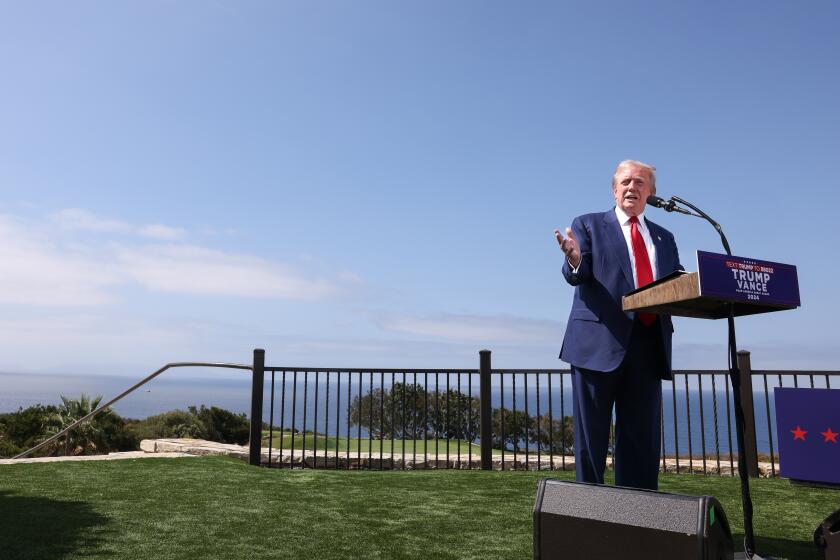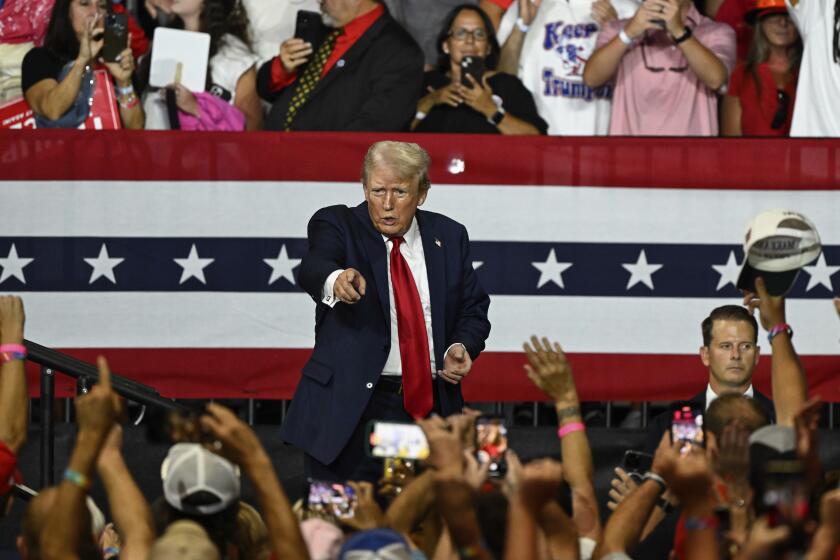Howard Dean and His American Dream Team
After Paul Tsongas won the 1992 New Hampshire primary, we on his staff thought for a surreal moment lasting several days that maybe, just maybe, he might win the nomination.
After all, back in 1976 an obscure former governor bounced overnight from 5% in the polls to national prominence when he won the first-in-the-nation primary, which, along with a surprise caucus victory in Iowa, helped turn “Jimmy Who?” into the eventual Democratic nominee. Jimmy Carter’s unlikely triumph in 1976 provides enduring encouragement for longshot presidential contenders like Howard Dean of Vermont, who just happens to be an obscure former governor at about 5% in national polls.
Even without tons of cash or name recognition, you can supposedly go door to door for a couple of years in a tiny state famous for “retail politics,” where the locals expect presidential candidates to ask in person for their support, and if you can win over a plurality of the state’s fewer than 200,000 primary voters, you’ll be hailed as a major contender.
“You can get awful famous in this country in seven days,” said Gary Hart, reflecting on his surprise win over Walter Mondale in the 1984 New Hampshire primary. Hart’s win elevated him above several better-known candidates, but that was only good enough to make him Mondale’s chief rival for the nomination.
Six years later, Tsongas rode his New Hampshire momentum to victories over Bill Clinton in Maryland, Utah, Arizona and Washington. But Tsongas, like Hart, ended up no more than a foil for the eventual nominee.
Does Howard Dean, now tied for a lead in New Hampshire, face the same fate? Not necessarily.
Dean appears poised to benefit from three dynamics that assisted Carter in 1976 but that crucially eluded Hart in 1984 and Tsongas in 1992.
The first is organization. Long before his surprise New Hampshire win in 1976, Carter somewhat anonymously traveled throughout the country to meet party officials and lay a coast-to-coast groundwork for his campaign. As Tsongas put it, Carter created a national constituency “by sheer shoe leather.”
Tsongas’ own campaign, however, was not prepared for a nationwide effort after New Hampshire. Likewise, Hart in 1984 spent his limited resources on Iowa and New Hampshire in an effort to score an initial breakthrough, but then was unready to fight simultaneous campaigns in several large states.
In contrast, Dean appears to be building a nationwide constituency, though not by “sheer shoe leather.” Dean has collected more than 18,000 supporters online at Meetup.com, a free Web-based tool designed to facilitate monthly group meetings around various topics. Though not a scientific measure of electoral appeal, Meetup provides a mechanism for Dean enthusiasts to self-organize.
It remains to be seen whether Dean will be able to effectively plug into these local groups to raise money or organize volunteers. But for now, Dean is using the Web to build a nationwide organization on the cheap. If he succeeds, the lesson for future campaigns may be that it is as valuable to be “Netgenic” as it is to be telegenic in presidential politics.
A second ingredient for success after New Hampshire is the ability to attract the support of the traditional -- read: liberal -- Democratic constituencies that vote in primaries. Both Tsongas in 1992 and Hart in 1984 did well among upper-income, better-educated whites, but neither candidate attracted significant support from blacks, union members or self-described liberals.
Despite standing to the right of most Democrats on the deficit and gun control, Dean doesn’t appear to have a problem with the liberal party base.
Finally, if he were alive today, Tsongas might warn Dean that a third key to success is getting good press. Reporters dismissed Tsongas as a regional candidate despite his victories in states as far afield as Maryland, Arizona and Washington. “The press did not take us seriously,” Tsongas told me after the campaign. “A good example of that was the fact that Bill Clinton got on the cover of Time magazine in January, before he had won a primary. After winning New Hampshire, I still wasn’t on the cover.”
Howard Dean may not soon grace Time’s cover, but overall he is enjoying remarkably favorable coverage. Editor & Publisher magazine reports that the national press has anointed Dean “the freshest face of the Democratic Party.”
Still, the tone of press coverage can swing like a pendulum; ask Gary Hart. For now, though, Dean’s staff in Burlington, Vt., can be forgiven for thinking that maybe, just maybe, this obscure former governor will win the nomination.
More to Read
Get the L.A. Times Politics newsletter
Deeply reported insights into legislation, politics and policy from Sacramento, Washington and beyond. In your inbox three times per week.
You may occasionally receive promotional content from the Los Angeles Times.










